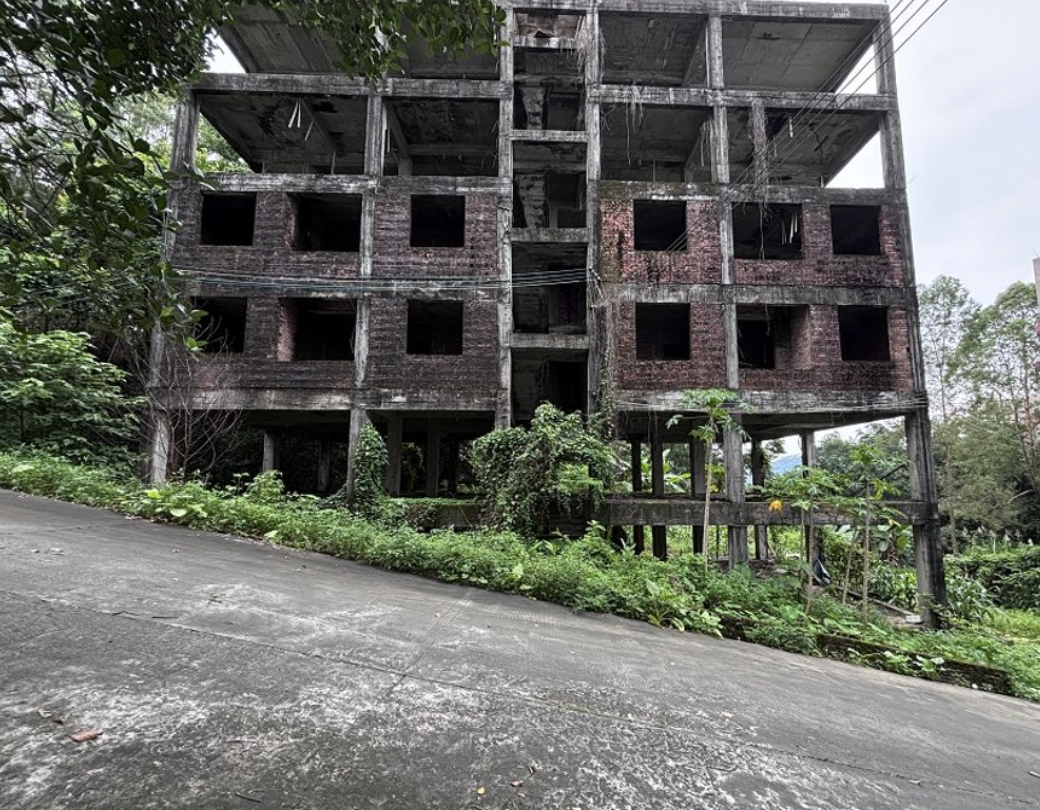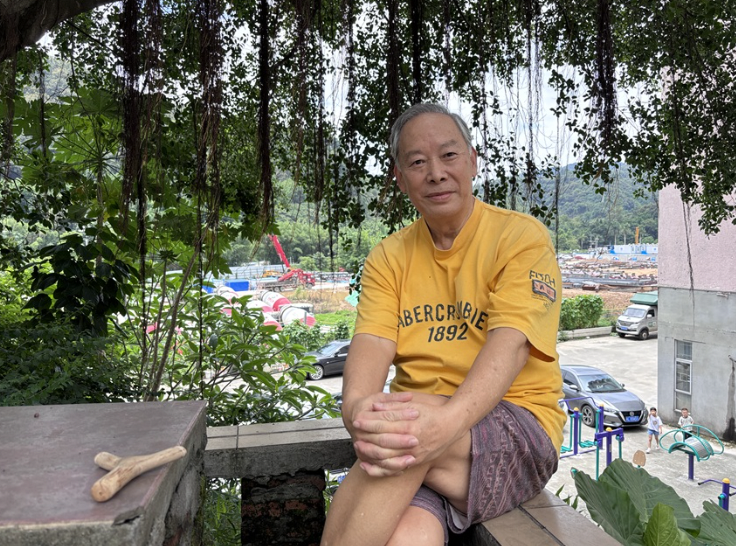"Saplings I planted have grown up in a blink of an eye," she says.
But her "blink of an eye" has actually lasted 27 years.
After retiring in 1998, Ma moved to Australia Garden Village, a residential and resort project in Guangzhou's Huangpu district. She hoped to spend her retirement in a quiet place, away from the city center. Two years later, construction stalled due to lack of funds and permits.
It is Guangzhou's largest stalled project and one of the longest unfinished developments in China. Ma and many other residents are trapped in this ghost estate.
Today, around 50 households remain scattered across more than 200 unfinished buildings, where the sounds of frogs and birds mix with the hum of machinery.
 |
Guangzhou's largest stalled project, China. Photo: Think China |
Guangzhou's largest stalled project, China. Photo: Think China
Liu Yongguang is among the nearly 2,000 people who signed purchase agreements in 1996. He spent about 70,000 USD on two adjacent units on a hillside, planning to live with his elderly mother.
Three years later, as he prepared to move in, he started seeing signs of deterioration. Over 30 buildings at the foot of the hill were ready for handover, those midway up were only painted on the outside with no doors, while the hilltop structures were bare concrete and steel frames.
Liu's two apartments were luckily among those ready for handover. However, due to fire safety violations, he and many other owners didn't receive ownership certificates.
Despite this, he moved in. But the developer failed to pay utility bills, leading to frequent water and power outages. For the first 10 years, he lived mostly by candlelight, using spring water for daily needs.
As residents left, theft became rampant. Thieves drove in, pried open doors of empty units, and stole appliances and furniture. He had to install three sets of iron bars and mesh to seal his ground-floor windows. One summer, the water was cut off for three days. Liu, then in his 60s, had to bathe in the spring at night and carry water back for his use.
Despite the hardship, Liu, a former soldier, never considered leaving. "If I leave, everything I own will be lost," he said. In 2012, his mother passed away in the apartment. He became the sole resident in the empty building.
Unlike Liu, many who bought units midway up or on the hilltop didn't even have a place to live in, as construction never commenced.
 |
He Yongnian in his unfinished home in Guangzhou, China. Photo: Think China |
He Yongnian in his unfinished home in Guangzhou, China. Photo: Think China
Seventy-seven-year-old He Yongnian bought a unit in 1998. But when he retired 10 years later, the designated construction site was still an overgrown patch of land. As compensation, the developer gave him a bare-bones apartment of equivalent size at the foot of the hill. After basic renovations, he and his wife moved in in 2009.
In his youth, He was a diver for the Beijing team, later becoming a coach and working in Malaysia in the 1990s. After years in the tropics, he couldn't tolerate Beijing winters, so he chose to retire in Guangzhou. He and his wife chose Australia Garden Village as their only place to settle down in their old age. Now, he grows string beans in the summer and radishes in the fall in his small garden amidst the abandoned buildings.
Those trapped in the ghost estate illustrate the broader issue of stalled projects. The most recent wave occurred in 2022. The pandemic and economic downturn were partly responsible, but the crisis also exposed systemic flaws in the real estate sector.
Eighty-seven-year-old Li Yi, a retired teacher, says she doesn't want to leave. In 2016, she was relocated downhill due to structural issues with her original unit and spent over 14,000 USD renovating her new place.
"I've put in too much effort and money. How can I leave?" she said.
According to Bloomberg Intelligence, as of August 2024, China had at least 48 million pre-sold apartments yet to be completed. In the past two years, thanks to the government's "guaranteed delivery" policy, the situation has somewhat improved.
Since the resettlement project restarted, Liu Yongguang often drives up the hill to check on its progress. After 27 years of waiting and numerous efforts to protect his rights, he is preparing to move into his new home.
"Finally, that day has come, but sadly, many didn't live long enough to see it," he said, standing at the construction site.
Ngoc Ngan (From Think China)












